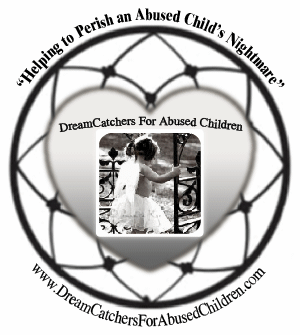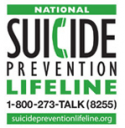Why Does Child Abuse Occur?
 Harm, or risk of harm to children and young people, can occur when stress, tiredness, lack of skills, information and support combine to make the pressures of caring for children overwhelming. There is generally not a single factor that results in the abuse or neglect of a child; it is usually a combination of various factors. In addition, the duration (such as the duration of an illness) or intensity (such as the level of drug or alcohol abuse) can make it more or less likely that a child will be at risk for abuse. When trying to understand child abuse and neglect, we often look at possible factors in the adult, factors based on something in society, and factors based on something about the child.
Harm, or risk of harm to children and young people, can occur when stress, tiredness, lack of skills, information and support combine to make the pressures of caring for children overwhelming. There is generally not a single factor that results in the abuse or neglect of a child; it is usually a combination of various factors. In addition, the duration (such as the duration of an illness) or intensity (such as the level of drug or alcohol abuse) can make it more or less likely that a child will be at risk for abuse. When trying to understand child abuse and neglect, we often look at possible factors in the adult, factors based on something in society, and factors based on something about the child.
WHERE DOES CHILD ABUSE OCCUR?
·1 in poor, middle class, well-to-do homes
·2 in any ethnic, cultural, occupational, religious and age groups
·3 in child’s own home or outside it
·4 in rural areas, suburbs, cities
·5 involving one or both parents
Tragically, though, it most often happens at home and usually the abuser is known to the child. Generally, the abuser is a caretaker. A caretaker can be a parent, stepparent, relative or baby-sitter
WHY DOES CHILD ABUSE OCCUR?
There is no easy answer to this question, because many factors are involved. However, child abuse is most likely to occur when parents are struggling with:
- Stress…Pressures from money problems, everyday frustrations, illness or heavy responsibilities.
- A painful childhood…Adults who were mistreated as children may, without meaning to, continue the pattern of abuse with their own children.
- Alcohol or other drugs…can blind a parent to a child’s needs or may reduce inhibitions and tolerance levels so that parents may be more likely to lash out.
- Isolation…Without friends or relatives nearby, parents can feel overwhelmed by the demands of raising a child.
- Inexperience with children or unrealistic expectations…If parents don’t know what to expect from children, they may expect too much. Besides lacking the parenting skills necessary to raise a child, the parents may have no models of successful family relationships from which to learn.
- Immaturity…Very young, insecure parents often can’t understand their child’s behavior and needs.
- Unmet emotional needs…Parents may expect children to take care of them and to satisfy their need for love, protection and self-esteem.
Child abuse and neglect are complex problems. There is no one single cause. Different forms of child abuse are caused by different factors or different combinations of factors. Some of the factors which can lead to child abuse are described below. At the core of all forms of child abuse is a lack of basic respect for children.
- Community tolerance of violence against children.
- There is still some acceptance in the community for the use of physical force for the purposes of discipline and punishment of children. When held strongly by individual parents, these attitudes can support the physical and emotional abuse of children. This behaviour would not be tolerated between adults.
- Lack of community understanding about the consequences of child abuse and neglect on children.
- Research has shown that the general public have a poor understanding of the true extent of the problem of child abuse in Australia. As a result, child abuse does not readily register as an issue of community concern. This leaves all of us without the knowledge and the confidence to know what to do to prevent child abuse in the first place or take action if we are worried about the safety of a child.
- Adults who are sexually and physically violent.
- Some adults engage in physical and sexual violence towards other adults and children. This violence may often stem from individual psychological problems, low self esteem and a history of abuse and violence in their own childhood. Sex offenders hurt children because of a range of complex psychological and emotional problems.
- Parents under stress.
- Child abuse can occur when parents experience stress and find it difficult to ask for or use support. Stress can be caused by unemployment, financial problems, divorce and separation. Parents under stress can sometimes transfer their feelings of frustration onto their children. The stress can also affect their judgment and decision making as a parent.
- Parents with health or mental health problems.
- Child abuse and neglect can sometimes occur when parents have a personal problem or illness which affects their ability to parent their children. Many parents with a mental illness that is being treated and who receive adequate support can parent their children well. Parents who have a mental illness that is unrecognised or untreated or who lack important supports may neglect or abuse their children. Their illness may make it difficult for them to identify or meet their child.s growing needs for security or stimulation.
- Parents with alcohol or drug problems.
- Parents who are addicted to illicit drugs or alcohol can leave their children in unsafe environments or without adequate supervision. When substance or alcohol affected, some parents may be more prone to using violence against their partners and/or their children. Without adequate support, parents with an intellectual disability may sometimes not be able to care for their children.
- Parents lack parenting skills.
- Sometimes child abuse and neglect can be caused by parents who have poor parenting skills. This may be because they did not have positive role models in their own parents. Sometimes, a lack of confidence and low self esteem prevent parents from knowing how to change harmful or negative parenting styles.
- Families who are isolated.
- Families who are socially isolated are sometimes not able to find people to support them if they start having problems with their children. Often families who are isolated have no extended family network and often feel left out of their community. Sometimes, families experience isolation because of the loss of a parent through death or separation. Some families experience isolation because they become homeless and have to live in temporary accommodation.
CAN CHILD ABUSE BE PREVENTED?
Prevention is the only sure cure for child abuse and neglect. Through family education and support programs, the vicious and tragic cycle of abuse can be stopped. Our plan for prevention includes:
- Helping parents learn to raise and nurture their children without physical or emotional violence. This can be done through support groups and parenting programs and through public awareness campaigns.
- Organizing and supporting early intervention programs like Healthy Families Virginia, that provide continuous support to families from the birth of a child through age five.
- Training teachers, day care workers, doctors and other professionals about how to prevent abuse and how to recognize and treat abuse when it does occur.
- Supporting laws and programs that protect children from the pain of abuse.
Factors That Contribute to Child Abuse and Neglect
Child Sexual Abuse Facts
---------------------------------------------By the time you finish reading this, 15 children will have been abused; In the next five minutes, 30 more; Within the next hour, 360 more; And by tonight, close to 8,000+ children will have suffered from abuse, 5 of which will die. Child abuse has increased 134% since 1980 and is now considered a worldwide epidemic. The high jump in child abuse deaths and the shocking increase in statistics highlights the frightening lack of public knowledge.
Educate Yourself -- Learn the Facts
It May Just Save a Child's Life!!


















![Validate my RSS feed [Valid RSS]](http://dreamcatchersforabusedchildren.com/wp-content/uploads/2009/10/valid-rss.png)











